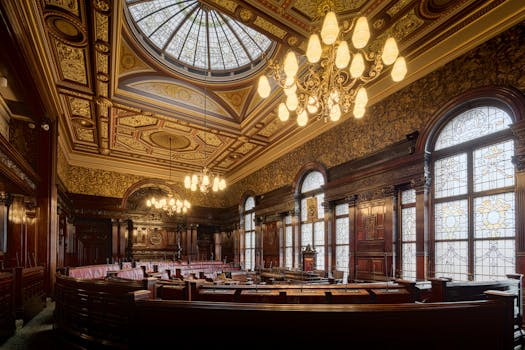Gentrification debates shaping city council meetings
Gentrification is a hotly debated topic in urban areas across the world. It’s a multifaceted issue that involves race, class, and economics. But beyond the heated discussions and news headlines, gentrification also shapes something crucial to local communities: city council meetings. As cities continue to grow and develop, the issue of gentrification plays a significant role in the decisions made by city leaders. In this article, we’ll explore how gentrification debates are shaping city council meetings and the impact they have on the communities they serve.
The Rise of Gentrification
Before we dive into the effects of gentrification debates on city council meetings, let’s first define what gentrification is. In simple terms, gentrification is the process of renovating and improving a neighborhood, often resulting in an influx of affluent residents and a rise in property values. While this may seem like a positive development, it often leads to a displacement of the existing low-income residents, businesses, and culture of the area.
The effects of gentrification are widespread and can be seen in cities across the world, from New York City to London. In many cases, the process of gentrification is fueled by developers and investors seeking to capitalize on the potential value of a particular area. As a result, the conversation surrounding gentrification has become increasingly polarized, with critics highlighting the negative impacts on vulnerable communities and proponents touting the benefits of economic growth and revitalization.
The Impact on City Council Meetings
City council meetings are where local government officials come together to make decisions that affect the lives of their constituents. From zoning changes to infrastructure projects, city council meetings are a crucial forum for addressing the needs and concerns of the community. However, these meetings can become contentious when gentrification is on the agenda.
One of the main concerns surrounding gentrification is the displacement of low-income residents. As developers move in and begin to revamp the area, it often leads to rising property values and rents. This can force long-time residents out of their homes, as they can no longer afford to live in the neighborhood. As a result, city council meetings become a battleground between those in favor of gentrification and those fighting to protect the interests of the marginalized communities at risk of displacement.
But gentrification debates don’t just divide residents; they also divide city leaders. As elected officials, city council members have a responsibility to their constituents, but they also have a duty to promote economic growth and development in their cities. This conflict of interest can lead to tension and disagreements within the council, making it challenging to come to a consensus on gentrification-related issues.
Finding Solutions
So, what can be done to address the impact of gentrification on city council meetings? The first step is acknowledging that gentrification is a complicated issue that cannot be solved by a one-size-fits-all solution. There’s no denying that the revitalization of urban areas is essential for economic growth and creating vibrant communities. However, it’s crucial to ensure that this growth does not come at the expense of the existing residents.
One way to address this issue is by actively involving the community in the decision-making process. City leaders must listen to the concerns and needs of their constituents and work towards finding solutions that benefit everyone, not just a select few. This can be achieved by implementing policies such as rent control, affordable housing requirements, and community land trusts.
Conclusion
Gentrification debates are shaping city council meetings and the decisions made by local government officials in urban areas. While gentrification may bring economic growth and revitalization, it also leads to the displacement of vulnerable communities and divides city leaders. It’s crucial for city council meetings to be a forum where all voices are heard and solutions are found that benefit the entire community. As cities continue to evolve and grow, it’s vital to prioritize the well-being of its residents, especially those at risk of being pushed out by the forces of gentrification.











